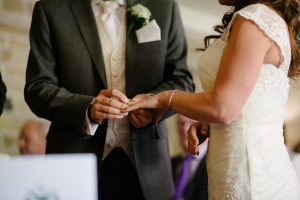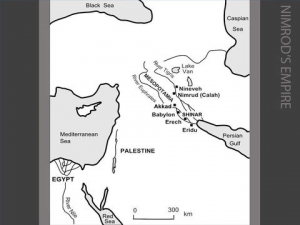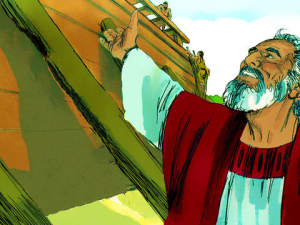Children’s Bible Program – Level 1: Lesson 16 “The Rainbow Covenant”
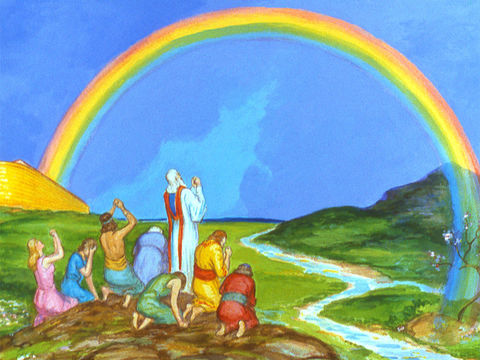
Sweet Publishing | FreeBibleImages.org
By Janth English
Read Together: After the Flood was over, the ark came to rest on top of the mountains of Ararat. These mountains are in the country called Turkey today. Noah, his family, and the animals remained aboard the ark for more than a year. Wow! It took a long time before the earth was dry enough for them to live on it. After they left the ark, God told Noah, Shem, Ham, and Japheth that He wanted them to have big families and fill the earth with more people. God also made a new covenant with all living creatures that He would never again destroy the earth with a flood. The sign God gave of this new covenant was the rainbow.
Read Together: Genesis 8:1–22; 9:1, 11–19.
Discuss:
- Ask your child, by way of review, what was the Flood? Why did God bring the Flood on humanity?
- Ask your child, what was the promise God made after the Flood was over? What was the sign of that promise?
- Ask your child if he or she has ever seen a rainbow. What does it look like? How would he or she describe it?
- Discuss God’s command to Noah and his sons to “be fruitful and multiply.” Why did God ask them to have lots of children? Were there any people other than Noah and his family alive after the Flood?
- Explain that every living human being today is descended from Noah and his sons.
Review Memorization:
2 Peter 2:5 “And (God) did not spare the ancient world, but saved Noah, one of eight people, a preacher of righteousness, bringing in the flood on the world of the ungodly.”
More to Do!
These activities are optional, but some children may find them enjoyable.
- Your child might be interested in comparing the size of the ark with modern structures. This website had some interesting comparisons.
- There are several Noah’s ark crafts available on Pinterest that your child might enjoy.
- There are several videos on YouTube of the Noah’s ark replica in Kentucky. This Noah’s Ark Encounter video is short but it does mention the dimensions.


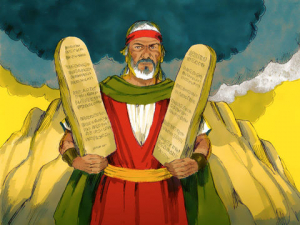
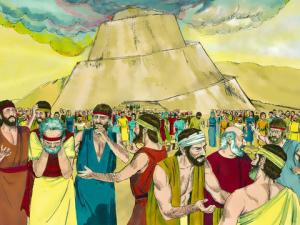
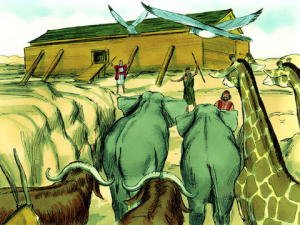
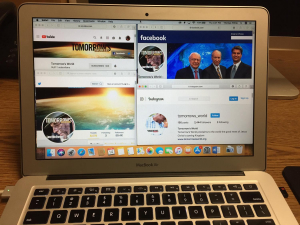
 If a random person on the street walked up and said, “Hi! Let’s be friends”, I would naturally be a bit suspicious. If that person wore a ski mask, I would be more suspicious, and probably run. As Mr. Wakefield pointed out, social media makes it possible for people to try to gain your trust while wearing fabricated identities as their ski masks, so socializing with people you’ve never met offline is usually a bad idea. Acting with knowledge means being careful about who we believe online, as well as being careful about what we put there. “Set a guard, O LORD, over my mouth,” reads Psalm 141:3, and today, as Mr. Wakefield said, “mouth” could just as easily be “keyboard.” The internet is a mixture of good and evil, and if we act with knowledge, God can keep us from the latter.
If a random person on the street walked up and said, “Hi! Let’s be friends”, I would naturally be a bit suspicious. If that person wore a ski mask, I would be more suspicious, and probably run. As Mr. Wakefield pointed out, social media makes it possible for people to try to gain your trust while wearing fabricated identities as their ski masks, so socializing with people you’ve never met offline is usually a bad idea. Acting with knowledge means being careful about who we believe online, as well as being careful about what we put there. “Set a guard, O LORD, over my mouth,” reads Psalm 141:3, and today, as Mr. Wakefield said, “mouth” could just as easily be “keyboard.” The internet is a mixture of good and evil, and if we act with knowledge, God can keep us from the latter.